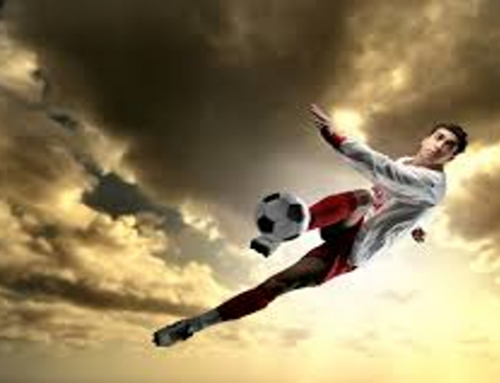What is the most underrated of coaching skills? I’m sure opinions vary, but to my mind the ability to listen is the least trained ability that coaches possess. It’s taken for granted, rarely taken seriously enough, and often overlooked on sports coaching courses. But it’s important. Here’s why…as well as a few ideas to help you become a outstanding listener on the sports field.
For many years the art of coaching was viewed with simplicity – it was to know and to speak. It was to learn all you could about a given area in sport and then to disseminate this information to the individual or the group.
The golf coach learns a lot about the golf swing and then tells her clients what she needs to do to improve her swing.
The soccer coach learns a lot of the technical and tactical sides of football and then instructs his team to implement what he knows.
To know and to tell may well be the rod and staff of coaching competence, but to be the very best coach you can be, no matter your sport, you have to have developed a range of soft skills that help competitors build skill and high perform under pressure.
One such soft skill is listening. Often the poor relation to other areas of the psychological and social components of coaching, it is a human quality that is a critical essential if you want to help sports performers increase skill and perform with greater consistency.
I have, on several occasions, worked with clubs and teams with players who have complained to me that the coaching staff don’t listen to them. Those players felt undervalued and under-coached. They felt the coaches didn’t care about their game. They felt they had little or no chance of improving their competitive skills.
It is my belief that to listen is to lead. Listening is an essential skill that all sports coaches need to improve if they want to lead individuals and teams. Here’s a few ideas to help you become a better listener.
Show Care
You want the fastest way to help a sporting competitor build confidence? Show them you care. Being an active listener becomes easier when you genuinely care about the development and performance of your players.
This sounds obvious right? But it’s human nature to have favourites at your club. It’s human nature (whether we like it or not) to take a dislike to the characteristics or personalities of some players who are under your guidence. It’s human nature to take more time with the players who shine through week in week out in training.
You have to overcome these kind of thinking biases. You have to strive to see every player, no matter their personality, temperament or ability as important to your coaching world. Every player counts. Every player matters. In this way you will genuinely care. And when you care that much about your players you will automatically actively listen to them.
Less of You
And more of them! You’re the coach. You aren’t the star of the show. You are their servant, you are their slave. You are the host. No matter their age or their level this is the case – their needs matter most!
With this in mind make sure your words are short and succinct. Make sure they have a platform to speak. Make sure they can air their grievances or give their opinion. Make sure they get a chance to tell you what they think about their game or think about the game.
To question rather than to tell is a sensible starting point with your communication. Let the players come up with answers. Let them use their imagination. Help them become the expert by giving them ownership of the training session. Be a leader who facilitates rather than dogmatically instructs.
The great coach asks great questions!
Of course there is a time to speak. There is a time to turn up the volume of your voice, and there is a time to instruct with detail. But keep this to a minimum. It doesn’t take a book of psychological research for coaches to understand that the retention of spoken information is minimal. Your players won’t remember much of what you said…and what they do remember they won’t action much of what is stored.
Direction through question is a powerful process that helps players learn at a deeper more meaningful level. And asking questions will help keep your words to a minimum allowing you to listen rather than speak!
Look Interested
If you’re a sports coach you probably work with kids right? Kids are kids…they’re not adults and they can be…BORING! They will talk about things that don’t interest you. They may waffle on about school, about Playstation games or, if they’re very young, cartoons and kids TV.
Boring right….
But you have to care and you have to listen and you have to make them feel special. When they FEEL special they will hit that learning and performance sweetspot.
If you’re not interested fake it! Look interested to BE interested. Act interested to BECOME interested.
Faking a bit of interest can help you actively listen. It helps your players feel wanted and cared for and special. That’s half the battle won.
And this process works with players of all ages. If you’re not naturally interested then fake the interest. Be interested to become interesting. Be interested to be liked and respected. Be interested to build relationship, unity and belonging.
You see cohesion and confidence, concentration and control…these psychological skills start with a soft skill that is so often neglected – the ability to listen. Stop making it a second class coaching citizen. Stop ignoring it. Become a world class listener as you continue on your journey to becoming a world class coach.




